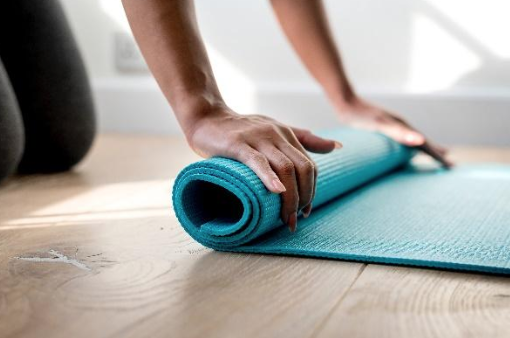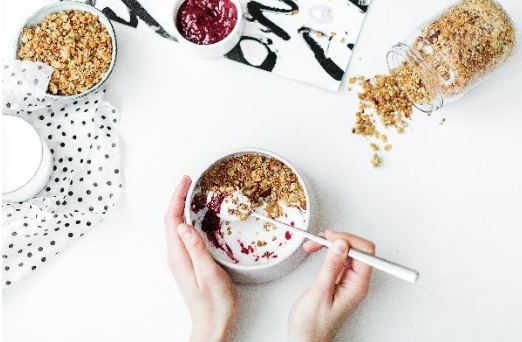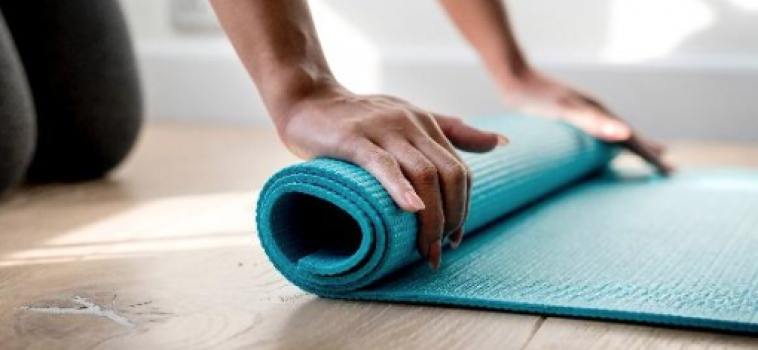It’s a question many Muslims have as Ramadan approaches. Should I exercise in the heat, during the long fasts? The thought of working out with no food and water can be daunting for many. Yet, so many Muslims continue to exercise during the holy month.
Ramadan is a month of increased worship in an attempt to gain closeness to our creator. It is a time of self- examination, spiritual reflection and a time to make extra effort to restrain from sins. Every effort is made to become better Muslims by doing good and avoiding evil.
In order to allow time for extra worship during this month, exercising is often overlooked as a priority. However, continuing to workout during Ramadan can actually help increase your energy levels, thus improving the quality of your worship overall. Studies show that fasted workouts are safe, effective and healthy when altered accordingly.

Ramadan won’t be a month where you’ll be making a lot of gains or hitting personal records but you can definitely maintain your current fitness level. Unless you regularly workout whilst fasting, workouts should be low-mid intensity; jogging, walking, yoga, weight training with lighter weights and a higher rep range are all acceptable. Testing your 1RM on deadlifts can wait until Eid when you can hydrate yourself fully. Begin by exercising for no more than 30 minutes and increase the time as your body gets comfortable with fasted workouts. It’s important to listen to your body and stop when necessary.
Here are some reasons as to why you should exercise during this holy month:
- To help maintain your level of fitness
Continuing to exercise during Ramadan will help maintain your fitness level. You will still be able to run 5k in 30 minutes and you will still preserve your muscle mass. Your hard work during the last 11 months will not be hindered.
- To help you lose/maintain weight
There is scientific evidence that shows fasted exercise trains our bodies to shed fat by using fat stores in our body to convert into carbohydrates to be used as energy. This is great for those who want to shed a few more pounds during Ramadan. Many gain weight in Ramadan because they open their fast with unhealthy food options so exercising is key to controlling your weight.
- To increase your energy levels
Exercise trains the heart to work more efficiently, transferring more oxygen to the brain and other vital organs; this increases your energy levels. Working out also releases endorphins making you feel happier and more energetic. Research shows that exercise also helps improve quality of sleep- getting a good night of sleep will make fasting easier as your mind and body will be well rested.
When is the best time to work out during the day?
- 1.5 hours after opening your fast. This is arguably the best time because you have energy from your iftar and you can hydrate yourself during and after exercise. However, the night prayers commence shortly after so many people will be busy at this time.
- Before Suhoor is another great option. You can have a post-workout meal and begin your fast. However, many people have work early in the morning or have to sleep early if they have young children they need to attend to in the early morning.
- An hour before iftar. This allows you to eat and hydrate straight after your workout. However, this is the point when you will be most hungry and thirsty and won’t be able to hydrate yourself during the workout.
- In the morning or during the day is probably the worst time to workout as you won’t be able to re-fuel until the late evening. However, this is the time when some people are mostly free.
The best time for an effective workout is shortly after iftar but everyone has different schedules, so choose a time that suits you and alter your workouts to a lower intensity if necessary.
Pay attention to nutrition during this holy month
It is important to continue having a balanced diet. Eat lots of protein such as fish, chicken and cottage cheese to aid muscle recovery, complex carbohydrates such as oats and beans which contain a lot of fibre and provide slow-releasing energy. Healthy fats such as nuts and avocado provide important nutrients but should be consumed in moderation as they are high in calories. Eat lots of vegetables and fruit and drink lots of water to stay hydrated.

Avoid having deep fried, fast food and added sugar foods. These are high in calories and provide very little nutrients. Islam teaches moderation in every aspect of life. In the Quran, Allah mentions:
“And eat and drink, but waste not in extravagance, certainly He (Allah) likes not those who waste in extravagance.” (7:31)
We will be rewarded for every effort we make to stay healthy, eat in moderation and look after the bodies Allah has gifted us with.
May you all have a blessed, productive Ramadan, eat clean and stay lean 😊
Author Bio
Maryam is a fully-qualified personal trainer and Hatton boxing instructor based in Reading, UK. She offers individualised coaching, in person and online, that supports women to lose weight and develop a healthy, positive relationship with food. You can access your free weight loss checklist by subscribing to her website Lift Everest.




Jazakallah khair sister
Please can you contact us
We are considering using some of your work in our blog.
We are keen to get the local Muslim community together and active in Thurrock, Essex
thurrockmuslims.com/contact-us/